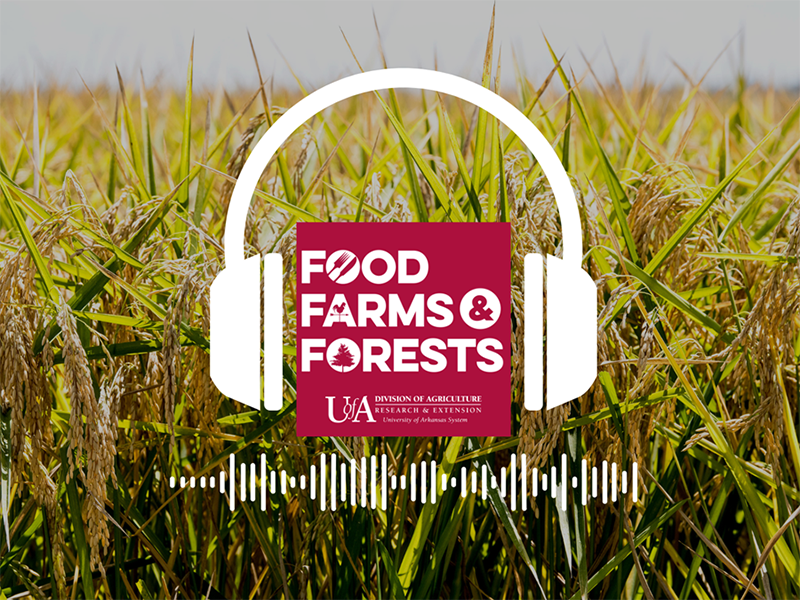
Arkansas could produce an estimated 1 million to 3.5 million more servings of rice per year. That's according to recent research analyzing rice quality in the state.
In this episode of Food, Farms and Forests, Lanier Nalley, interim department head and professor in the Agricultural Economics and Agribusiness Department, explains his research on the impacts of improving rice milling quality.
Nalley and Alvaro Durand-Morat conducted a study titled "Feeding More With The Same Output: How Enhanced Rice Quality Genetics Can Lead to Increased Food Security and Producer Profitability."
This research explores how enhancing the genetic quality of rice can significantly increase the amount of rice available for human consumption without increasing the yield.
Nalley explains how improving rice quality can reduce the percentage of broken rice kernels during milling, which often end up as pet food or brewing ingredients rather than on people's plates. By ensuring more rice kernels remain whole, Arkansas could produce an estimated 1 million to 3.5 million additional servings of rice per year, contributing to greater food security locally and globally.
Nalley also discusses the collaborative efforts and hard work of the Arkansas Rice Breeding Program in achieving these results.
Subscribe to Food, Farms and Forests.
To learn more about Division of Agriculture research, visit the Arkansas Agricultural Experiment Station website. Follow us on X at @ArkAgResearch, subscribe to the Food, Farms and Forests podcast and sign up for our monthly newsletter, the Arkansas Agricultural Research Report. To learn more about the Division of Agriculture, visit uada.edu. Follow us on X at @AgInArk. To learn about extension programs in Arkansas, contact your local Cooperative Extension Service agent or visit uaex.uada.edu.
About the Division of Agriculture: The University of Arkansas System Division of Agriculture's mission is to strengthen agriculture, communities, and families by connecting trusted research to the adoption of best practices. Through the Agricultural Experiment Station and the Cooperative Extension Service, the Division of Agriculture conducts research and extension work within the nation's historic land grant education system. The Division of Agriculture is one of 20 entities within the University of Arkansas System. It has offices in all 75 counties in Arkansas and faculty on five system campuses. The University of Arkansas System Division of Agriculture offers all its Extension and Research programs and services without regard to race, color, sex, gender identity, sexual orientation, national origin, religion, age, disability, marital or veteran status, genetic information, or any other legally protected status, and is an Affirmative Action/Equal Opportunity Employer.
Topics
Contacts
Jenifer Fouch, communications specialist
Arkansas Agricultural Experiment Station
479-502-9732, jfouch@uark.edu